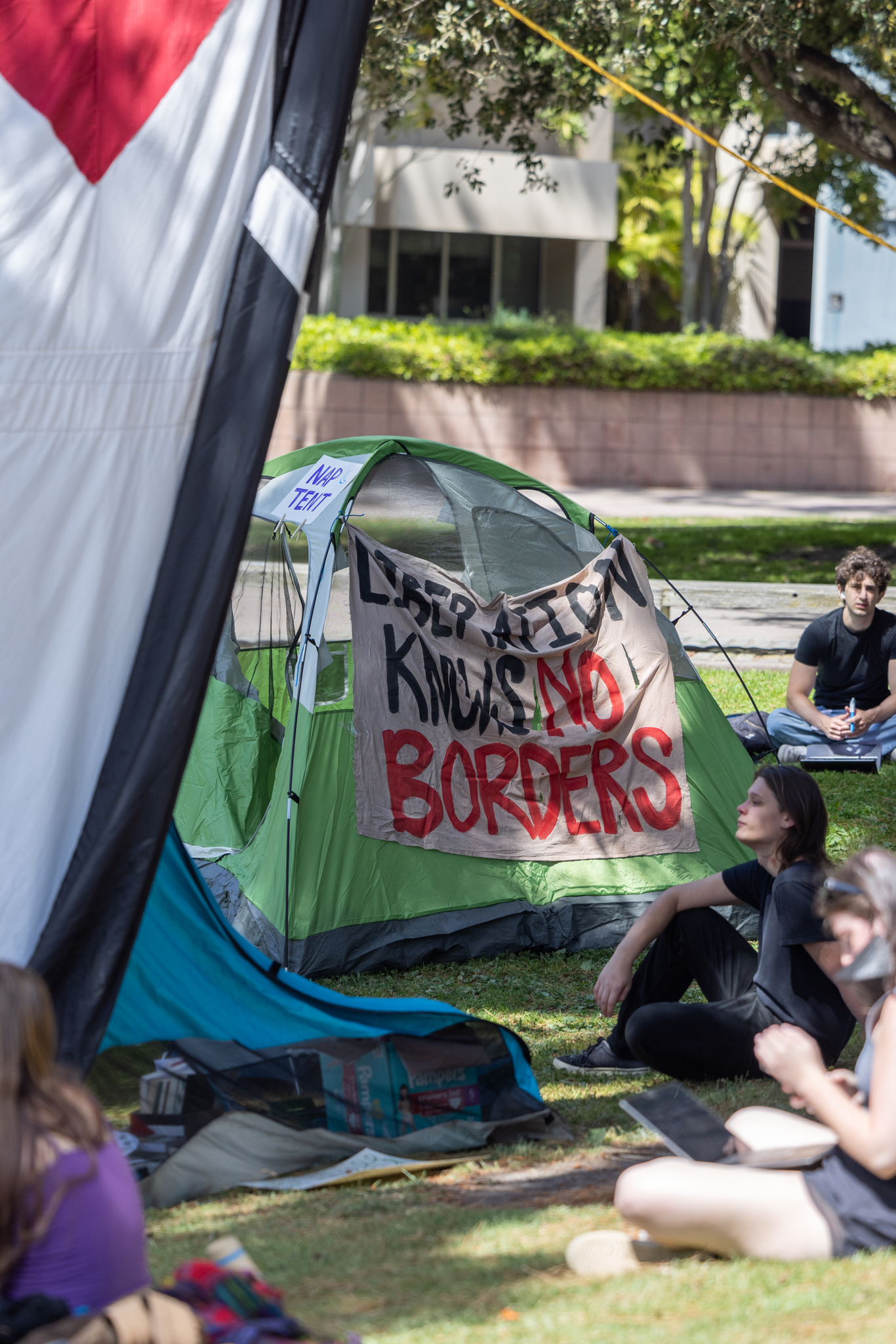UC Santa Barbara Students Set Up Gaza War Protest Camp Peacefully
Chancellor Sends Message on Conduct, Safety, and Dialogue

Friday was Day Three of an encampment constructed at UC Santa Barbara, where supporters of Palestinians have engaged in peaceful activism and demonstrations for a cease-fire in the Israel–Gaza conflict.
The encampment began at 4 a.m. on May Day — historically a day recognized for worker protests since it was first celebrated in the United States in 1886 as a part of laborers’ fight for an eight-hour work day. As on university and college campuses nationwide, the encampment at UCSB is informally recognized as a “liberated zone” on the greens in the area between Davidson Library and the physical sciences buildings. The group includes 30-50 university-affiliated individuals who remain in about 10 tents for the day-and-night protest.
The camp has rules. Upon entering, protesters are asked to sign in — a name or code name suffices — and to give emergency contact information. Organizers ask participants for their confrontation comfort level on a scale of green (least), orange, or red (okay with being arrested).
College campuses have been at the forefront of demonstrations in support of Palestinians in Gaza and against Israel, and in some cases, violence has occurred and participants arrested. At the University of Southern California (USC), 93 people have been arrested, and at UCLA, violence between pro-Palestine protesters and counter-protesters ensued late on April 30. More than 2,000 arrests occurred across the nation in recent weeks.
At UCSB, an “unsanctioned rally” on Wednesday and the encampment have been peaceful, attracting a limited presence by Campus Security Officers (CSOs) but great attention from students, who have posted a multitude of photos and videos of the encampment since it began. As of Friday evening, no reports were made of any confrontations. However, the unsanctioned encampment has drawn attention from Chancellor Henry Yang.
The chancellor issued a statement, saying he cherished the long-held tradition of student activism and First Amendment rights on UCSB’s campus but also informed students, “Those violating laws and codes of conduct in unsanctioned, illegal, and disruptive activities, whether non-affiliates or members of our campus community, are subject to legal and disciplinary action.”
“Moving forward,” Yang’s letter continued, “we are willing to work with student groups that wish to protest or express their rights and views peacefully, consistent with law and campus conduct policies, without disrupting or interfering with our core educational and research mission.”
Yang was likely referring to protest signs at the MultiCultural Center in February targeted anti-Semitic statements at the Jewish president of Associated Students. That occurrence sparked a Federal Discrimination Probe by the U.S. Department of Education that began in the last week of March and is still ongoing.
“We must ensure campus safety, and respect the right of everyone on campus to feel safe,” Yang wrote. “We recognize that the violence and suffering in the Middle East have caused great distress in our campus community and we urgently hope that a peaceful resolution will be found. We remain committed to dialogue and education, especially where there are strongly held and differing views. As a public university, the University of California welcomes regular reviews of its policies and practices; there is much that can be debated with analytic rigor.”
